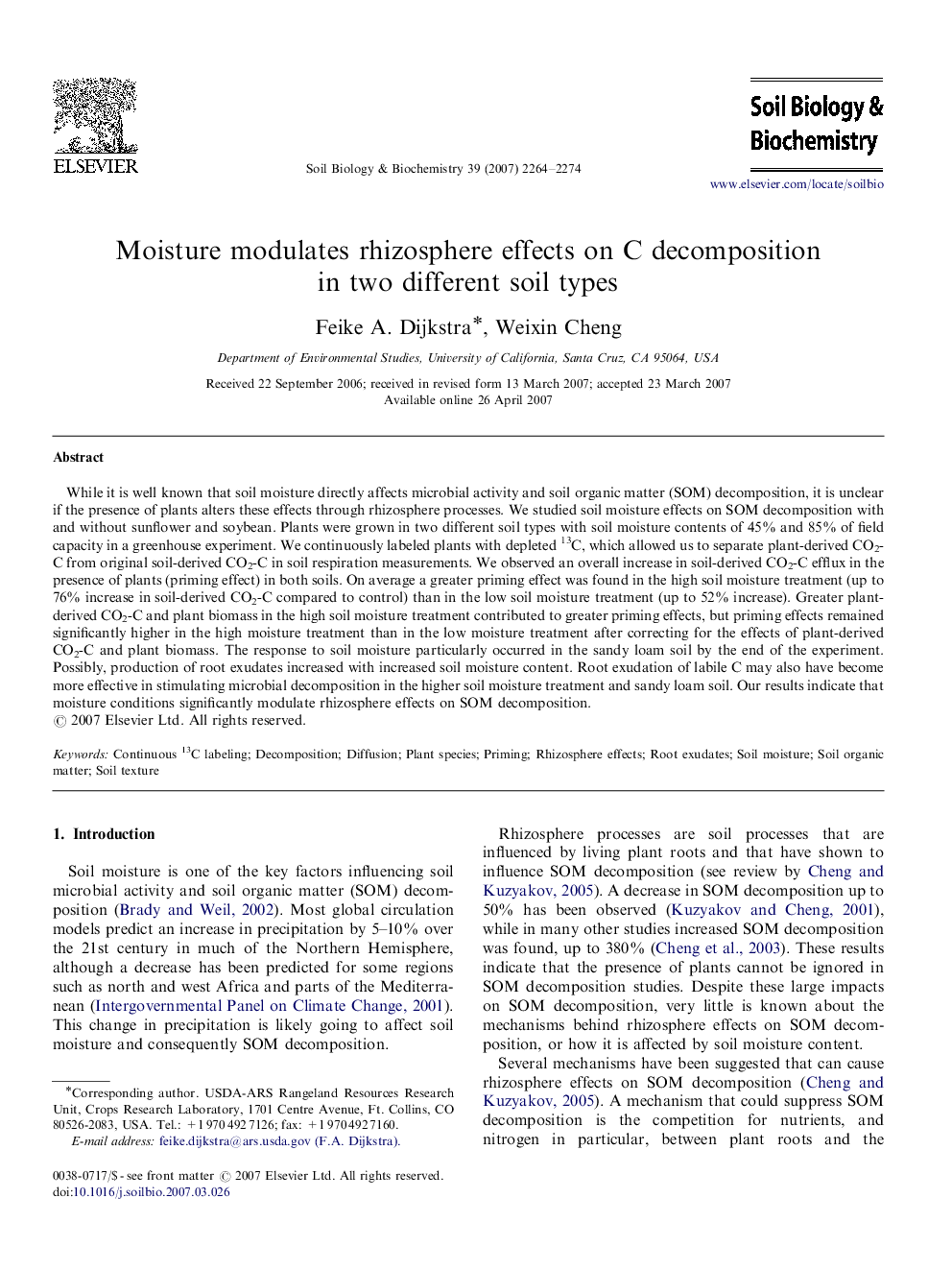| Article ID | Journal | Published Year | Pages | File Type |
|---|---|---|---|---|
| 2026183 | Soil Biology and Biochemistry | 2007 | 11 Pages |
While it is well known that soil moisture directly affects microbial activity and soil organic matter (SOM) decomposition, it is unclear if the presence of plants alters these effects through rhizosphere processes. We studied soil moisture effects on SOM decomposition with and without sunflower and soybean. Plants were grown in two different soil types with soil moisture contents of 45% and 85% of field capacity in a greenhouse experiment. We continuously labeled plants with depleted 13C, which allowed us to separate plant-derived CO2-C from original soil-derived CO2-C in soil respiration measurements. We observed an overall increase in soil-derived CO2-C efflux in the presence of plants (priming effect) in both soils. On average a greater priming effect was found in the high soil moisture treatment (up to 76% increase in soil-derived CO2-C compared to control) than in the low soil moisture treatment (up to 52% increase). Greater plant-derived CO2-C and plant biomass in the high soil moisture treatment contributed to greater priming effects, but priming effects remained significantly higher in the high moisture treatment than in the low moisture treatment after correcting for the effects of plant-derived CO2-C and plant biomass. The response to soil moisture particularly occurred in the sandy loam soil by the end of the experiment. Possibly, production of root exudates increased with increased soil moisture content. Root exudation of labile C may also have become more effective in stimulating microbial decomposition in the higher soil moisture treatment and sandy loam soil. Our results indicate that moisture conditions significantly modulate rhizosphere effects on SOM decomposition.
